Hello! Six months ago, I received a microloan in the amount of TR 7,000. from Excellent Cash. I could not repay on time, there were very big problems with finances. To this day, they called me back and demanded to pay the debt with fines, at the moment the debt is, as they say, 120 tr. - these are fines for 6 months. The other day, an SMS message came in which said that my debt was transferred to CREDIT EXPRESS for pre-trial settlement, they urgently required to call them back to avoid extremely negative consequences. I can pay the main debt with interest, but I can’t do these “frantic fines”, I don’t have any property or work. Help, what should I do?
Answer
Take a bank statement from the bank and a statement of the current debt status. In order not to overpay, take official paper from the collectors with the calculation of your debt. If the collectors do not respond to your requirements for calculating the amount of the debt and do not go to court so that interest and penalties for debt do not increase, you should contact them with a written complaint.
You should also pay off the debt, plus a fine and save payment documents. For all claims of creditors to send them to court, and in court to reduce the amount of interest. In accordance with the law, the court can reduce and, as a rule, reduce the amount of forfeits, fines and interest increased in case of delay. However, the law does not provide for a reduction in the amount of ordinary interest (those that you must pay if you would fulfill your obligations on time). And with microloans, it is these percentages that are very large.
In case of serious threats and extortion - write a statement to law enforcement agencies. You must understand that collectors can repay a debt in only two ways: either voluntarily, or through a court, they have no other powers.
I took a loan in excellent cash, did not pay for several years. In September, a letter came from the bailiffs. It says that I have a debt N. Subpoenas, I did not receive. Tell me what to do.
Hello.
Cancel the court order.
For this you have 10 days from the date of receipt.
You can get it in the magistrates court or in bailiffs.
The recoverer then has the right to apply to the court in order of action, but you will be summoned to a meeting, you can provide evidence, give explanations.
Hello, receive a copy of the court order and file an objection regarding its execution along with a petition for the restoration of the missed deadline.
Good luck and all the best
Hello.
It is necessary to familiarize yourself with the materials of the enforcement proceedings, take an order and file an objection with a request for the restoration of the term.
Hello, you should get a copy of the court order from the bailiff or at the magistrate’s court and file your objection to its cancellation within 10 days from the moment it was received.
You can go to court, get acquainted with the case file and file for restoration of the term for appeal. But it’s not the fact that they will restore it, but if they do, it is unlikely that they will change the decision: you took a loan, you didn’t pay it, so you’ll have to pay it back.
Dear visitor of the site!
In your situation, you can find out from the bailiff on the basis of what document the penalty is being taken. If this is a court order, you can cancel it with the restoration of the deadlines for appeal.
I took a loan in excellent cash, but lost my job on ionization closed I can not return the dollar, what should I do !? I did not work officially.
Hello!
Can not pay do not pay. Send them to court. In court, ask to lower interest. After the court decision comes into force, you can apply to the court that made the decision with a statement and ask to defer and / or install the payment of the debt by installments (Article 434 of the Code of Civil Procedure of the Russian Federation)
Hello, you can contact the bank with a request for restructuring, but carefully review their terms. Often they are predatory. If the conditions are not satisfactory, it’s easier not to pay, because all your payments will only pay fines and penalties, you will not get to the main debt and interest, wait for the trial and in court you can reduce the amount of debt on the basis of Art. 333 of the Civil Code of the Russian Federation.
If there is no money, then you won’t do anything. Wait until they sue. At court, reduce interest and penalties as they will wind up tens of times more. Then pay the bailiffs whenever possible.
Good afternoon! Either look for money and return, or wait for the court, through the court it will be possible to reduce interest, fines and penalties under the Civil Code of the Russian Federation, since if you go now and find the money, they will count you a lot.
Good afternoon!
If you can’t pay the debt and interest is paid, it’s better to wait until the lender to go to court to recover the debt and to apply for lower interest on the loan in court.
Information provided by the Internet portal GAS "Justice" (sudrf.ru)
The trial plot No27 of the Western intracity district of the city of Krasnodar
msud27.krd.msudrf.ru
Case No. 2-134 / 14-27
In the name of the Russian Federation
Magistrate court plot number 27 Western Intracity District g.
Krasnodar Sokolova Yu.A.
when Secretary Degtyareva MA
having examined in open court a civil case under the lawsuit of Krylova Yulia Alexandrovna against LLC Mikrozay on recognition of the contract invalid,
INSTALLED:
The plaintiff filed a lawsuit against Mikrozay LLC to declare the contract invalid. In support of his claims, he indicated that on August 11, 2012, loan agreement No. 1-684 was concluded between her and the defendant, according to which a loan of 8,000 rubles was granted for a period until August 27, 2012 with interest payments of 732 % At that moment, the plaintiff urgently needed money for the period of searching for a new job. She was forced to turn to the defendant, because the amount required was small, and banking organizations did not issue such loans. Due to the difficult financial situation, on August 26, 2012 the plaintiff first returned 2,400 rubles to the defendant, and on October 22, 2013 another 10,560 rubles, which is confirmed by receipts.
However, in January 2014 the employees of Mikrozaym LLC sent her a notice that the plaintiff had arrears under the Loan Agreement in the amount of 80,500 rubles, which she was obliged to repay. Turning to a lawyer, the plaintiff found out that the loan agreement was concluded on extremely unfavorable conditions for her (732% per annum for the use of funds and 732% per annum for the delay in the performance of the contract) and can be recognized as an invalid (bonded) transaction. Based on the foregoing, it asks to recognize loan agreement No. 1-684 of 08/11/2012 as invalid on the basis of conclusion on extremely unfavorable conditions.
At the hearing the representative of the plaintiff - Malyavko A.S. She insisted on the lawsuit, and also asked for reimbursement of expenses for the services of a representative in the amount of 15,000 rubles.
The representative of the defendant at the hearing - Zakharov C.AND. He asked to refuse the claim, due to the fact that the plaintiff is a regular customer of the defendant, each time when receiving a loan the plaintiff was explained the terms of the loan agreement, the plaintiff, when signing the contracts, confirmed that he understood the terms of the contracts. Thus, the plaintiff perfectly understood the terms of the contract and statements about not recognizing the interest rate are unfounded.
Having heard the parties, having examined the case materials, evaluating the evidence presented, the court comes to the following:
The court found that on August 11, 2012, a loan agreement No. 1-684 was concluded between the plaintiff and the defendant, according to which a loan of 8,000 rubles was granted for a period until August 27, 2012 with interest payments of 732%.
On August 26, 2012, the plaintiff first returned 2,400 rubles to the defendant, and on October 22, 2013 another 10,560 rubles, which is confirmed by receipts. However, in January 2014 the employees of Mikrozay LLC sent her a notice that the plaintiff had arrears under the Loan Agreement in the amount of 80,500 rubles, which she was obliged to repay.
From Art. 421 of the Civil Code of the Russian Federation it follows that citizens and legal entities are free to conclude an agreement. The terms of the contract are determined at the discretion of the parties, except when the content of the relevant condition is prescribed by law or other legal acts. At the same time, the principle of freedom of contract does not exclude the observance of the rules of reasonableness and justice when determining its content.
By virtue of paragraph 1 of Art. 10 of the Civil Code of the Russian Federation, civil rights are not allowed exclusively with the intent to harm another person, circumventing the law with an unlawful purpose, or other obviously unfair exercise of civil rights (abuse of law).
In accordance with Art. 166 of the Civil Code of the Russian Federation, the transaction is invalid on the grounds established by law, by virtue of its recognition by the court (contested transaction) or regardless of such recognition (void transaction). The requirement to declare the disputed transaction invalid may be submitted by the party to the transaction or by another person specified in the law.
By virtue of h. 3 Article. 179 of the Civil Code of the Russian Federation, a transaction on extremely unfavorable conditions, which a person was forced to make due to a combination of difficult circumstances than the other side took advantage of (enslaving transaction), may be declared invalid by the court at the suit of the victim.
According to data published in the Banking Statistics Bulletin No. 2 for 2013, the weighted average interest rate on loans granted by credit institutions to individuals in August 2012 (the period for concluding a disputed loan agreement) with a repayment term of up to 30 days is 13.2% .
In the case of the plaintiff, the interest rate under the disputed agreement (732%) so exceeded the average interest rate prevailing in the lending market for loan agreements with similar conditions, which indicates the cabality of this agreement.
In addition, the provision of loans at excessively high interest is an abuse of the right of the lender to the detriment of the economic interests of the borrower.
On the basis of part of Article 98 of the Civil Procedure Code of the Russian Federation, the party in whose favor the court decision was taken shall be awarded, on the other hand, all legal expenses incurred in the case.
The burden of these expenses in the form of hospitality in the amount of 15,000 rubles rests with the defendant.
Based on the aforesaid and guided by Article. Art. 194 - 198 Code of Civil Procedure of the Russian Federation, court
Claims of Krylova Yulia Alexandrovna to LLC Mikrozay on recognition of the contract invalid - to satisfy.
Recognize loan agreement No. 1684 of August 11, 2012, concluded between the plaintiff and defendant invalid on the grounds of concluding on extremely unfavorable conditions (enslaving transaction).
Recover from LLC “Mikrozaym” in favor of Krylova Yulia Alexandrovna legal costs in the amount of 15 000 (fifteen thousand) rubles.
The decision can be appealed to the Leninsky District Court. Krasnodar within a month, through a magistrate.
Appeal ruling of the Stavropol Regional Court of 06.06.2014 in the case N 33-3140 / 2014
judge Kazanchev I.T.
The judicial board of appeal for civil cases of the Stavropol Regional Court of:
presiding judge Gedygusheva M.AND.,
judges of the Regional Court Fominova R.Yew. and Kaledina E.G.,
when the court clerk M.S.S.,
examined in open court
on appeal the director of LLC "MicroZaym" K.V.A.
by the claim D.AND.N. to MikroZaym LLC on the recognition of a microloan agreement and compensation for moral damage as invalid
having heard the report of Judge Fominov R.Yew.
installed:
The court received a statement of claim D.A.N. to MikroZaym LLC on the recognition of a microloan agreement and compensation for moral damage as invalid.
In support of the stated requirements, it is indicated that on July 23, 2013 between D.A.N. and MikroZaym LLC concluded loan agreement N, according to which MikroZaym LLC provided the plaintiff with a loan in the amount of 19,000 rubles for consumer purposes with interest accrual in accordance with clause 1.2 of the agreement in the amount of 2% for each day of use of cash (732% per annum) ), with a return 08/07/2013
The plaintiff believes that the terms of the contract of July 23, 2013 N are enslaving, since the amount of the loan interest stipulated by the contract is overstated, significantly exceeds the amount of the main debt, does not correspond to the inflation rate and bank income usual for such transactions, significantly exceeds the refinancing rate for the period of the loan agreement.
The plaintiff asked the court:
To invalidate the loan agreement dated July 23, 2012 N, concluded between D.A.N. and LLC MicroZaym;
Collect from LLC MikroZaym in favor D.A.N. compensation for non-pecuniary damage in the amount of *** rubles;
Collect from LLC MikroZaym in favor D.A.N. the amount spent on the representative’s services in the amount of *** rubles.
By the decision of the Mineralovodsk city court of the Stavropol Territory of March 19, 2014 the claims of D.A.N. to LLC Mikrozaym on invalidation of the microloan agreement, compensation for moral harm, partially satisfied.
The court recognized the loan agreement of July 23, 2013 N, concluded between D.A.N. and LLC MicroZaym, invalid.
The court in recovery from LLC MikroZaym in favor of D.A.N. compensation for non-pecuniary damage in the amount of *** rubles, refused.
The court recovered from LLC MicroZaym in favor of D.A.N. court costs in the form of expenses on payment of representative services in the amount of *** rubles, refusing to recover such costs in a larger amount - *** rubles.
The court recovered the state fee in the amount of *** rubles from the MicroZaym LLC in the budget income of the Mineralovodsk municipal district of the Stavropol Territory.
The appeal director of the LLC "MicroZaym" K.V.A. He asks to cancel the court’s decision, to refuse to satisfy the claim in full, that the plaintiff in good faith signed the loan agreement, was fully acquainted with all the information about the conditions for concluding the agreement. The plaintiff must conscientiously fulfill the loan agreement on the basis of Art. Art. 309, 310, 421, 810.
There were no written objections to the appeal.
Claimant D.A.N. asks to consider the case in her absence, the representative of the defendant LLC Mikrozaym, notified of the place and time of the hearing of the case, did not appear at the hearing, did not inform the court about the reasons for the failure to appear. Under such circumstances, on the basis of h. 3 Article. 167 Code of Civil Procedure of the Russian Federation, part 1 of article 327 Code of Civil Procedure of the Russian Federation, the judicial board for civil cases finds it possible to consider the case in the absence of no-show.
After checking the case materials, discussing the arguments of the appeal, the panel of judges comes to the following.
The legality and validity of the decision of the trial court was verified on the basis of the arguments set out in the appeals, with an assessment of the evidence in the case in accordance with Art. 327.1 Code of Civil Procedure of the Russian Federation.
By virtue of Article 179 of the Civil Code of the Russian Federation, a transaction made under the influence of fraud, violence, threat, malicious agreement of a representative of one party with the other party, as well as a transaction that a person was forced to make due to a combination of difficult circumstances on extremely unfavorable conditions than the other party took advantage (enslaving transaction), may be declared invalid by the court at the suit of the victim.
As it was established by the court, on July 23, 2013 between Mikrozaym LLC, represented by a specialist of the loan issuing center L.M. (Lender) and D.A.N. (Borrower), N. loan agreement was concluded
According to clause 1.1 of the said agreement, the Lender transfers to the Borrower an interest loan in the amount of *** rubles, and the Borrower agrees to repay the indicated loan amount within the term established by the agreement and to pay interest on the loan amount in the amount and manner established by the agreement.
According to paragraph 1.2 of this agreement, interest on the loan amount is set at 2% (732%) per annum for each day of using the loan and is payable by the Borrower on the day the loan amount is repaid.
According to clause 3.1 of this agreement, the Borrower agrees to repay the Lender the loan amount specified in clause 1.1 of this agreement no later than August 7, 2013, but no earlier than 5 (five) days after the date of signing this agreement. On the day of repayment of the loan amount, interest shall be transferred to the Lender on the loan amount stipulated by this agreement. Loan repayment, interest payments are made in a single payment.
Thus, the plaintiff’s arguments that the terms of the loan agreement of July 23, 2013 N are enslaving, since the amount of interest stipulated by the agreement for the use of the loan is overestimated, significantly exceeds the amount of the main debt, does not correspond to the inflation rate and banking usual for such transactions income, significantly exceeds the refinancing rate for the period of the loan agreement, as well as the fact that the terms of the loan agreement regarding the establishment of interest on the use of the loan was extremely unprofitable for D.A.N. ent conclusion of the loan agreement of their size is almost 90 times higher than the refinancing rate of the Central Bank of the Russian Federation, have been confirmed in the hearing, confirmed indisputable documentary evidence available in the case file.
In support of the fact of a forced transaction - a loan agreement dated July 23, 2013 N, due to a combination of difficult circumstances than the other party to the transaction knowingly took advantage of as part of a competitive trial, the plaintiff submitted the following written evidence that met the requirements of the law on admissibility, sufficiency and reliability:
a sheet of exemption from official duties for temporary disability 26 VK / 09 N 003321 from 09.09.2013;
a sheet of exemption from official duties for temporary disability 26 VK / 09 N 003346 from 09.24.2013;
a sheet of exemption from official duties for temporary disability 26 VK / 09 N 003360 dated 02.10.2013;
a sheet of exemption from official duties for temporary disability 26 VK / 09 N 003398 dated 10/16/2013;
leaflet for exemption from official duties for temporary disability 26 VK / 09 N 003418 dated 01.11.2013
K.I.V. was also questioned as a witness in a civil case by the court of first instance, which showed that D.A.N., before solving the issue of the loan issuing center of MikroZaym LLC She said that if the issue is resolved positively, she will spend the money on treatment.
In view of all the above circumstances, the trial court correctly concluded that at the hearing the plaintiff proved the fact of a forced transaction - a loan agreement dated July 23, 2013 N, on extremely unfavorable conditions, due to a combination of difficult circumstances than another the party knowingly took advantage (enslaving transaction), and also during the examination of the dispute on the merits the defendant and his representatives did not submit evidence that meets the principles of relevance, admissibility and sufficiency, as well as confirming the basis and legitimacy of the stated objections, the Court considers that the claim for annulment of the loan agreement of 23.07.2012, N M 3-033 / 1302839 signed between D.A.N. and LLC MicroZaym, is subject to satisfaction.
In view of the above, the arguments of the defendant’s complaint that the trial court made unlawful and unreasonable conclusions regarding the recognition of the loan agreement as invalid due to his bondage, the panel of judges finds it insolvent.
In accordance with Art. 15 of the Law "On Protection of Consumer Rights" the consumer has the right to compensation for non-pecuniary damage. According to Art. 151 of the Civil Code of the Russian Federation, if a citizen has suffered moral harm in the form of physical or moral suffering by actions violating his personal non-property rights, or encroaching on other intangible goods belonging to the citizen, as well as in other cases provided for by law, the court may impose on the offender the obligation of monetary compensation for this harm. Compensation for non-pecuniary damage is made in cash and its amount is determined by the court depending on the nature of the physical and moral suffering inflicted on the victim, as well as the degree of guilt of the harm inflicted in cases where guilt is the basis for compensation for harm, taking into account the requirements of reasonableness and justice (Article 1101 of the Civil Code RF).
An act violating the consumer’s property rights is at the same time an encroachment on his non-property rights, primarily on mental well-being, which is an integral element of human health. Consequently, non-pecuniary damage resulting from unlawful encroachment on such non-property rights must be compensated in cash on the basis of the provisions of Articles 151, 1090 of the Civil Code, which indicates that non-pecuniary damage was caused.
As the Supreme Court of the Russian Federation explained in the Decree of the Plenum of December 20, 1994 No. 10 (as amended on February 6, 2007) “Some issues of the application of the legislation on compensation for moral harm,” the court should establish what confirms the fact of causing the victim moral or physical suffering, what moral or physical suffering the victim suffered and other circumstances relevant to the resolution of a particular dispute.
In addition to the fact that the restoration of the plaintiff’s right was not directly related to the defendant’s guilty actions, which entailed a violation of the plaintiff’s rights as a consumer, provided for by laws and legal acts of the Russian Federation regulating relations in the field of consumer rights protection, or the plaintiff’s personal non-property rights, the court also takes into account circumstances that do not contain any evidence of the infliction of moral damage to the plaintiff in connection with the non-payment of insurance indemnity.
The panel of judges agrees with the findings of the trial court on the refusal to satisfy the plaintiff's claims for the recovery of moral damages from the defendants in her favor.
When resolving the issue of recovering court costs from the defendant in favor of the plaintiff, the trial court rightly referred to the norms of Art. Art. 88, 94, 100, 103 Code of Civil Procedure of the Russian Federation and Art. Art. 333.18, 333.33, 333.20, 333.19, 333.36 of the Tax Code.
The assessment of evidence made by the court of first instance, meets the requirements of the Civil Procedure Code of the Russian Federation, is correct, and therefore the judicial board has no reason to disagree with this assessment.
Thus, the judicial board concludes that the court of first instance, subject to Articles 12 and 56 of the Code of Civil Procedure of the Russian Federation, has correctly distributed the burden of proof between the parties in order to reach a lawful and justified court decision, established all the circumstances of the case, correctly interpreted and applied the material standards and procedural law, and the right conclusions were drawn about the failure to satisfy the stated claims of the plaintiffs and the satisfaction of the counterclaims of the defendant, in connection with what grounds for the annulment of the judgment the board does not have.
Guided by Article Art. 328 - 329 of the Civil Procedure Code of the Russian Federation, judicial board for civil cases of the Stavropol Regional Court
determined:
the decision of the Mineralovodsk city court of the Stavropol Territory of March 19, 2014 upheld; the appeal is dismissed
The share of overdue microloans of Russians is growing every year. An increasing number of borrowers are unable to repay the loan on IFC. This is partly due to the deterioration of the economic situation, partly to unstable work, but there remain those borrowers who, in principle, do not repay debts to microfinance organizations.
What is a delay?
A microloan delay is a violation by the borrower of the terms for repayment of debt in accordance with a loan obligation (agreement). For example, you issued a microloan with a one-time debt repayment on March 25. If on March 25 the money does not appear on the account of the credit organization, then on March 26 the delay will begin.
Often, borrowers consider the repayment date of the loan under the contract to be the payment date and make the money on that day, as a result, they do not have time to reach the microfinance organization on time and the delay begins. The borrower is to blame.
Almost all credit organizations warn their customers that they need to pay the debt in advance, 2-3 days before the date of the expected repayment. Only in this case can we guarantee that the money will be displayed on the lender's account on time.
What are the delays?
There is an unspoken periodization of delinquencies:
- From 1 to 5 days has almost no effect on the credit history of the borrower and is considered by many microfinance organizations for the usual delay in payment upon repayment. This usually happens when borrowers pay daily, and funds reach MFIs only after 1-3 days. However, in almost every company there are penalties for late payments, which begin to apply from the first day of payment delay.
- A delay of up to 30 days shows the microfinance organization and other lenders that the borrower had certain financial difficulties, which he decided and paid off the loan. Usually, when the debt is delayed up to 30 days, attempts to collect the overdue debt are made directly by the creditor through his collection service, without resorting to the help of collectors.
- Delay from 30 to 90 days. During this period, the microfinance organization usually decides to collect the debt on the loan in the hands of collectors. The transaction is executed under an agent agreement, under which collectors work for about 3-12 months or until the debt is fully repaid.
- A delay of more than 90 days in most cases means that the borrower is unlikely to return the debt, especially if during this time he ignores the lender and collectors, does not answer calls, does not contact, etc. A microfinance organization tries to quickly get rid of the debt of such a client, first giving it to collectors under an agent agreement, and then selling it completely under an assignment agreement.
How does an MFI work when debt transfers to collectors?
When a microfinance organization transfers debt to collectors for collection under an agency agreement, it continues to be the sole lender for the loan, but does not take any action to collect it. Since the conclusion of the agency agreement, all obligations to collect debts from the borrower are transferred to the "shoulders" of the collectors. They call the client, come home and demand to return the debt.
If an MFI sells debt of a borrower to a collection agency, then from that moment the MFI has nothing to do with debt and the borrower, and the collection agency becomes the client’s main and sole creditor. It is the collectors who will have to repay the debt.

Often, borrowers in such situations remain in the dark, because they are rarely someone warns about a change in lender. Typically, the borrower finds out when the lender goes to court or too much time passes.
In any case, the collectors act very decisively. They are trying in different ways to return the money. First, the borrower is exerted by remote pressure through calls, SMS messages, and threatening letters.
When communicating, collectors try different methods of collection: persuasion, threats, intimidation. They do not hesitate to call contact persons from the borrower's questionnaire and threaten completely strangers who have nothing to do with debt, and often - with the debtor himself.
If remote methods of collecting overdue debts are unsuccessful, a special group of collectors leaves for the borrower, who on the spot tries to scare the debtor so that he quickly returns the money.
Depending on the collection agency, its employees can walk around the neighbors talking about the debts of Vasya Pupkin from 34 apartments, write down the porch with impartial inscriptions, spray paint on the borrower's car, scratch it, lower the tires, etc. Their actions are difficult to predict, because a lot depends on the person himself and the collection agency.
If all collection methods are unsuccessful, the lender or collection agency that bought the debt under the assignment agreement may apply to the court to collect debts by force. In 99.9%, lenders win the courts, and the total amount of debt under the writ of execution is subsequently recovered from borrowers. The bailiffs are doing this.
When does the borrower's credit history deteriorate?
The borrower's credit history begins to deteriorate from the first day of delay, but most credit organizations pay attention to delays of 5 days. Few pay attention to delays in payments up to 5 days.
Everyone understands that they are most often caused by repayment of the loan day in and day out and subsequent delay in the transfer. Thus, the borrower can be considered a debtor only formally, in fact he did not miss the maturity of the debt. Banks and other lenders take this into account when considering the credit history of a potential client.

However, each borrower must understand that his credit rating is deteriorating from the first day of delay. It is in his interest to repay the loan on time. With the increase in the number of days of delay and outstanding loans, credit history is deteriorating and becoming bad.
To prevent delays in repaying a loan, use several rules and advice from our experts.
MFI Excellent Cash provides payday loans in the cities where offices and representative offices are present throughout Russia. Among clients of the organization are more than 190 thousand borrowers from different parts of the country. It is not surprising that there are a sufficient number of debtors among them, because MFIs are not scrupulous in selecting clients. Every day, hundreds of overdue borrowers ask themselves, “How do Excellent Cash collectors work?” What methods do they use to collect debt?
Which collectors does MFI Excellent Cash work with?
Among the collection agencies with which the MFI Excellent Cash collaborates are NSV (National Collection Service) and Everest.
Both organizations are members of NAPCA - the Russian association of collection agencies, which is designed to create a civilized market for services in Russia based on legal actions and a strict collection sequence.
The NSV has been operating on the market for a long time, but the Everest spacecraft has only recently become a part of it.
How Do Excellent Cash Collectors Work?
To begin with, I want to note that the credit institution has its own full-time service for collecting overdue debts, which operates worse than any collectors.
The fact is that spacecraft are more effective only in large cities, where they have offices and representative offices, as well as employees who often go to debtors. For a borrower who lives in a remote location, blocking annoying calls from collectors is not a problem, and none of the collectors will travel thousands of kilometers because of a debt of 15-20 thousand. Therefore, office workers in different cities are part-time and local collectors of this organization.
Once at a time it is not necessary, but they act quite tough. It all starts with standard calls to a mobile phone. However, instead of a calm conversation, threats immediately begin. They threaten the court with criminal liability for fraud, the arrest of all property, etc.
Threats come to the children, collectors say they will write a complaint to the guardianship authorities about the parents and then the children will be taken to the orphanage. There are also direct threats to health and life.
If the borrower does not answer the calls and does not pay the debt, the collectors start calling on the work phone number indicated in the questionnaire, talk about the borrower's debts, that he is hiding from the law, etc.
Among other things, they call all the contact persons whose numbers were indicated on the questionnaire and tell the same story. At the same time, relatives and friends are intimidated by the fact that they are allegedly guarantors of a loan and in which case they will repay the debts of a friend on their own. They are frightened by the same fables about prison, courts, seizure of property, etc.
If this also does not bring results, otlnal.ru collectors are sent to the place of residence. During a personal conversation with the borrower, they behave aggressively, are rude, shout loudly so that neighbors hear about the borrower's debts, etc.
Often, excellent Cash collectors piss the door and walls of the porch of the borrower with impartial inscriptions.
This continues for 4-8 months or until the borrower repays the full amount of the debt. After 6-12 months, the debt is transferred / sold to the collection agency NSV or Everest, which are not as tough as the collectors of the MFIs themselves.
At the very least, they rarely go home and do not scribble the doors of debtors. Their collection methods are based on psychological pressure, not physical.
In the first weeks, collectors of these organizations begin to actively name the borrower overdue. The number of calls reaches 90-150 units per day. The phone is simply dialed if the borrower does not pick up or hang up.
The organization also sends several letters to the mailbox with information that MFI Excellent Cash hired them under an agency agreement to collect debts.
If the borrower does not pick up the phone and does not make contact, the collectors begin to write SMS messages with threats, send a letter with the image of the prison cell and a copy of the application to the prosecutor's office on the fact of fraud. Also, in its letters, the NSW is constantly threatening to come to the address of the borrower. It indicates the exact date and time of arrival, however, at the appointed time, the collectors do not appear.
But after a couple of weeks, the borrower receives a new letter in which the collectors say that they were coming, but no one opened the door for them and now they will definitely turn to the police, and even file a lawsuit.
Such "letters of happiness" can be any number. In some of them, you can find a copy of the statement of claim to the court for debt collection, in others - a copy of the complaint to the guardianship authorities about the improper performance of parental duties, etc. All this is nothing more than a divorce, which is designed to scare the borrower, instill fear in him so that he repays the debt as soon as possible.




How To Deal With Excellent Cash Collectors?
Judging by how the excellent cash collectors work, it’s better not to contact them at all. This will only irritate them, they will behave even more defiant and aggressive.
It is much better to completely ignore calls. The Anti-Collector application, which can be downloaded for free from the Market and installed on your smartphone, will help to do this. You can also use the Black List service, which is available in modern phones or with operators.
After the first unpleasant communication with employees and collectors Excellent Cash, you must immediately write a review complaint directly. Most often, those who leave negative assessments and complaints are contacted by representatives of MFIs and try to resolve a controversial issue.

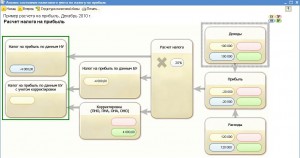
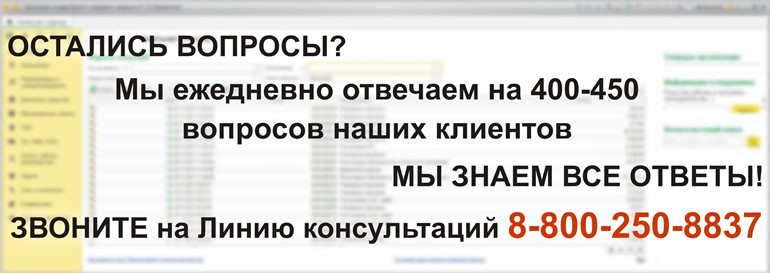
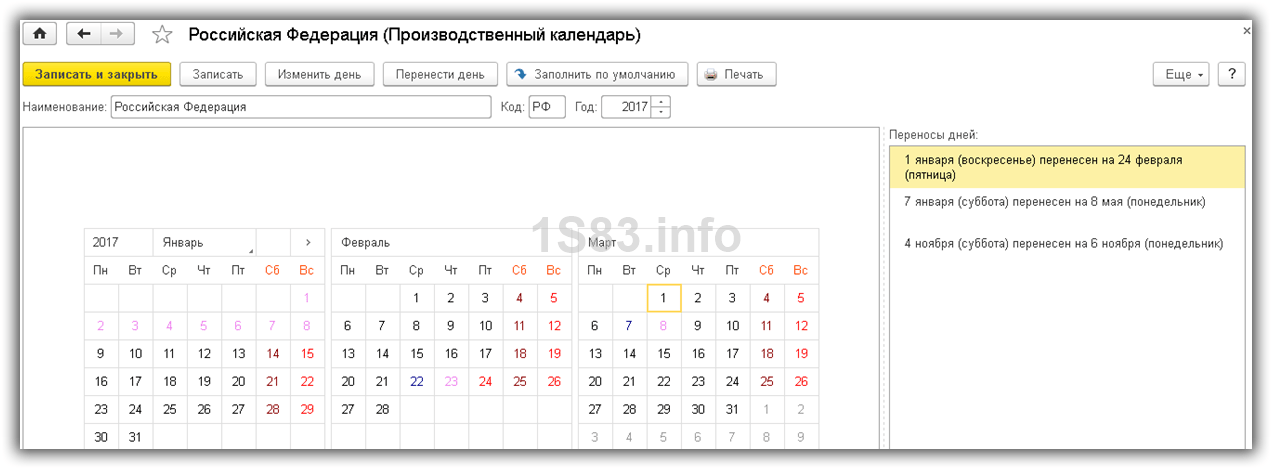
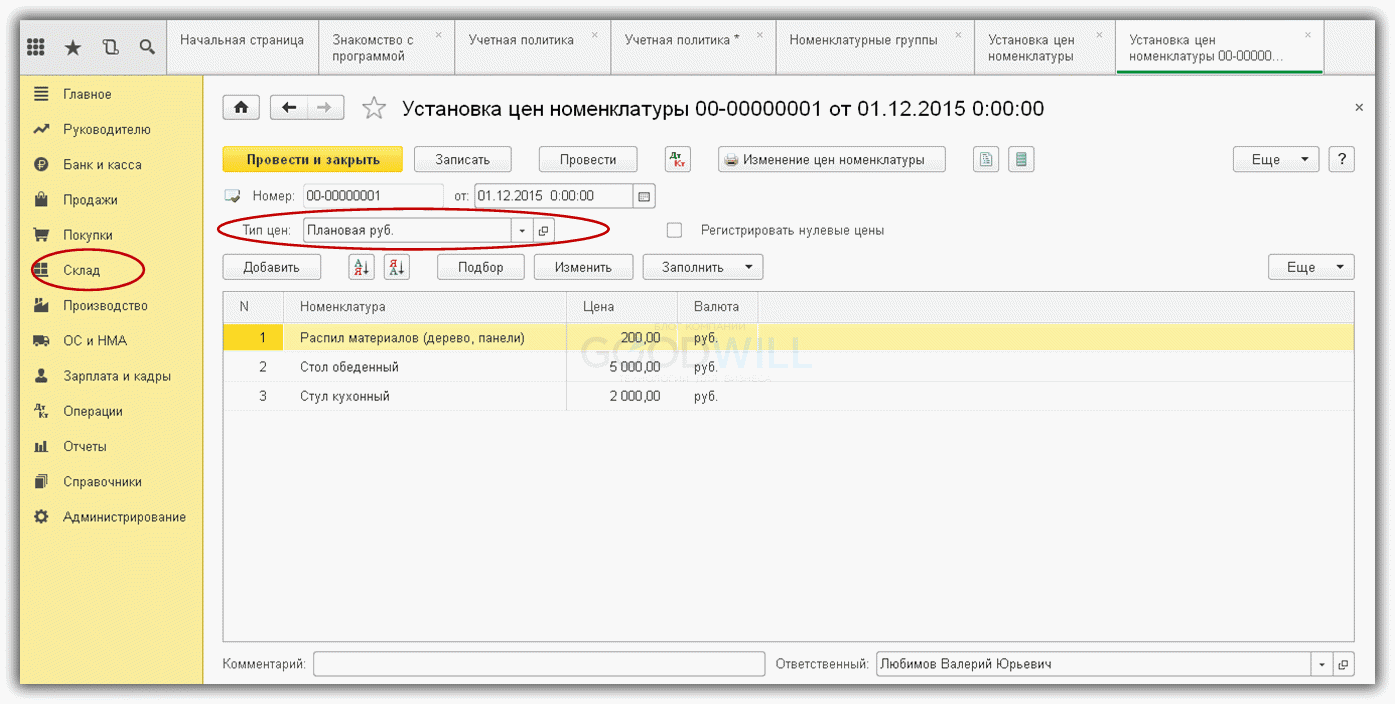
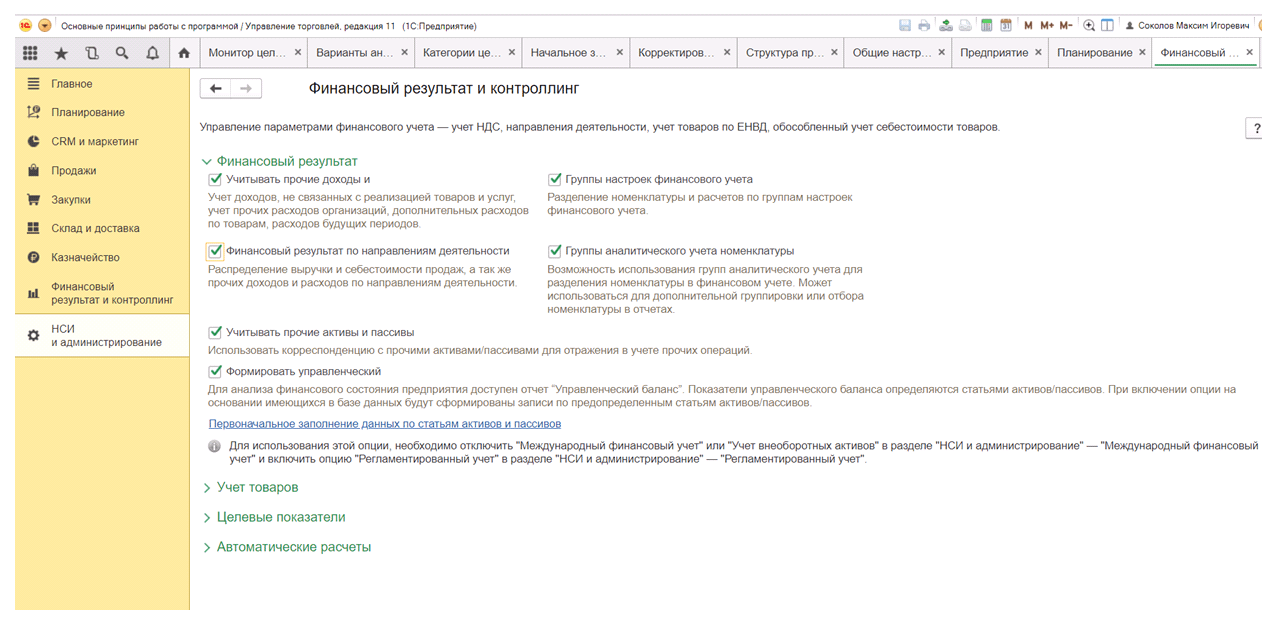
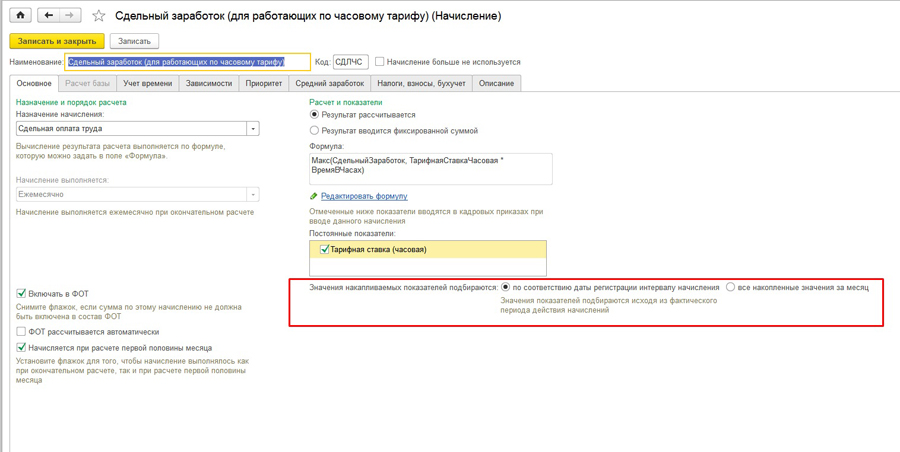


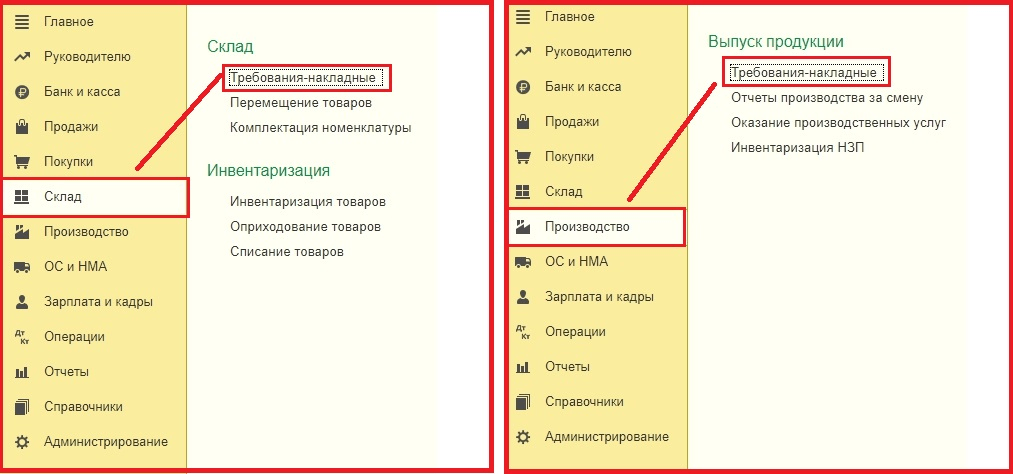

How to reset registers in 1s 8
3 print material report
Handbook "Ways to reflect salaries in regulated accounting
Filling OKVED in reporting
Inventory turnover